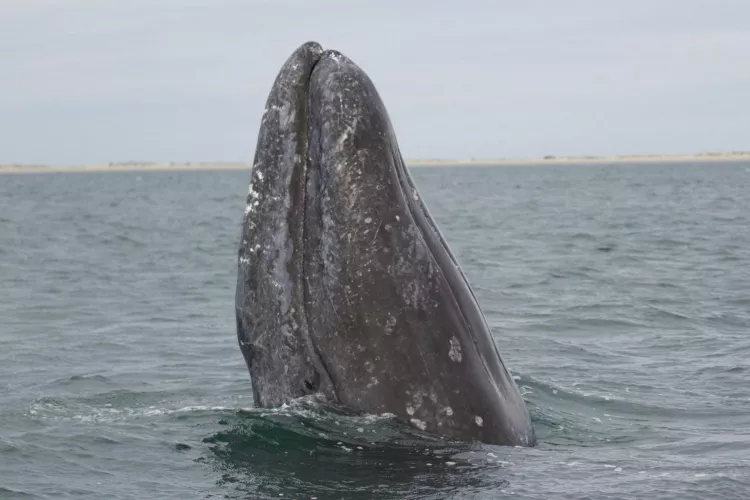Solar storms can mess with a whale's GPS
A new study shows how sunspots can cause whale strandings.
After studying 186 live strandings of healthy gray whales from 1985 to 2018, researchers at Duke University concluded that whales' navigational sense is affected by solar storms taking place as far away as our sun.
The researchers based their findings on the fact that the strandings are more likely to occur on days when there are more sunspots. Linked to solar storms, sunspots represent sudden releases of high-energy particles from the sun. These may disrupt magnetic orientation behaviour when they interact with the Earth’s magnetosphere.
The impact is so significant that on days with a high sunspot count, whales are 4.3 times more likely to get stranded on land. Just as sunspot activity rose and fell, so did the rate of strandings. “They showed the exact same cycle as the sunspots,” said graduate student Jesse Granger, in a The New York Times article.
Radio frequency noise
Granger suspects that the whales do not get stranded because a solar storm warps the Earth’s magnetic field (though it is possible). Rather, according to the University’s press release, the radio frequency noise created by the solar outburst does something to overwhelm the whales’ senses, preventing them from navigating altogether; it is somewhat akin to turning their GPS off in the middle of the trip.
Of course, although the findings of the study highlight sunspots as a reason for whale strandings, there are other reasons, like sonar activity and illness. “We’re not trying to say this is the only cause of strandings,” Granger said. “It’s just one possible cause.”
The findings of the study was published in the latest issue of Current Biology.
- Log in to post comments




























